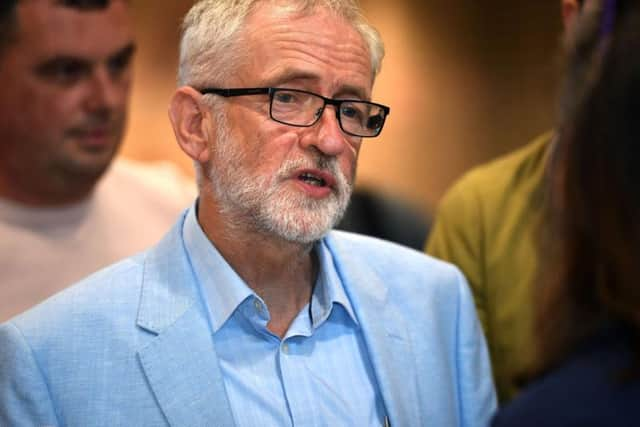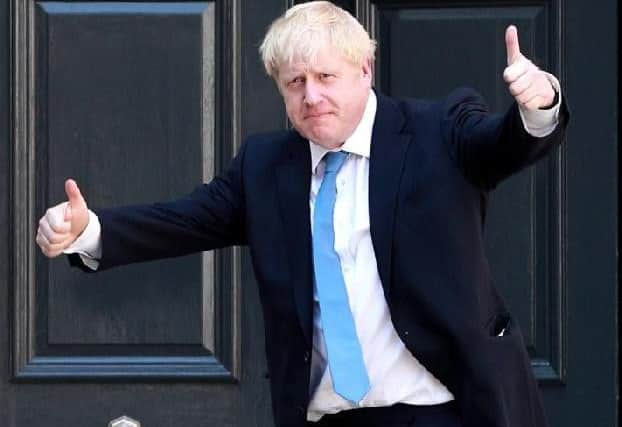Why no deal Brexit would be much more damaging than a Jeremy Corbyn Government: Tony Rossiter
We’re heading for an election and, if we haven’t left the EU by 31 October, the Conservatives will fight it as an all-out no-deal-Brexit party. Voters may be faced with a stark and unpalatable choice: A Corbyn government or a no-deal Brexit. Which would be the least bad?
Let’s look, first, at Corbyn. During his four years as Opposition leader he has shown – repeatedly – weak leadership and poor judgement. He purged the Opposition Front Bench of experienced and able MPs such as former ministers Hilary Benn and Yvette Cooper. He has failed to deal effectively with Labour’s anti-Semitic problem. He declined to acknowledge Russian involvement in the Skripal poisoning. And he has left voters confused about his party’s Brexit policy.
Advertisement
Hide AdAdvertisement
Hide AdThe raft of policies announced at the recent Labour Party conference is probably the most radical since Mrs Thatcher’s in 1979. Three of the most eye-catching are free personal care for the elderly with a cap on lifetime care costs, the target of net zero carbon emissions by 2030, and a publicly-owned company to make cheap versions of drugs the NHS needs but cannot afford. Other policies include reform of universal credit with an injection of £3bn into the benefits system, interest-free loans to buy electric cars and a 32-hour week within the next decade. Most of these policies will probably go down pretty well with an electorate fed up to the back teeth with austerity and cuts to public services. The fiscal rules proposed by Shadow Chancellor John McDonnell would allow the government to borrow to invest and would have a rolling target for the current balance, with tax receipts covering expenditure over a five-year period. If applied, doubts about the affordability of Labour policies would be reduced.


What about security and foreign policy? Corbyn’s record includes long-standing support for Palestinian statehood, opposition to military interventions overseas, support for Venezuela’s socialist regime (despite its human rights violations), and doubts about both NATO and the UK’s independent nuclear deterrent. However, maintenance of the latter was in Labour’s 2017 election manifesto. Any significant weakening of support for the Western Alliance seems unlikely.
To my mind the gravest doubts about a Corbyn government arise not so much from the policies proposed as from his poor leadership skills, his blinkered world-view and the influence of his far-left advisers.
What about a no-deal Brexit? The severe short-term problems were identified in the government’s Yellowhammer document: Border delays at Channel crossings; disruption to food, fuel, chemical and medical supplies; damage to just-in-time supply chains of the automotive and other industries; swingeing duties on meat and other exports.
Advertisement
Hide AdAdvertisement
Hide AdThere would also be significant longer-term damage to our industrial and economic base, with adverse effects on investment and jobs. Nissan has said that a no-deal Brexit would force it to review the future of its Sunderland plant. Other companies dependent on trade with the EU are likely to follow suit.


The Institute for Fiscal Studies has estimated that emergency tax cuts and higher public spending needed to offset the impact of no deal would take national debt to almost 90 per cent of GDP – the highest level since the 1960s.
A no-deal Brexit would leave us with a permanently impaired political and economic relationship with the EU. The suggestion that leaving without a deal would ‘get Brexit done’ is a lie. Nothing could be further from the truth.
Trade with our closest and largest partner would immediately become more difficult and more expensive – and companies would not know whether (and when) there would be any preferential trade deal with the EU. Any deals with other countries would in no way compensate – and would only materialise if they delivered major benefits for them.
Advertisement
Hide AdAdvertisement
Hide AdOnce outside the EU, even to open negotiations would require the unanimous agreement of the 27. The preconditions they would set are obvious: payment of monies owed (around £39bn) and agreement on citizens’ rights and the Irish border. Far from being the ‘clean break’ some have suggested, no deal would be not the end, but the start of a new and protracted debate. I’ll let former Chancellor Ken Clarke have the last word: “Both are awful prospects, but I think a no-deal Brexit could cause far more damage to our future economic success than Corbyn”. After all, a Corbyn government could be kicked out after (at most) five years. Damage caused by no deal would last much longer than that.
Tony Rossiter is a former diplomat from North Yorkshire who has taken part in many EU negotiations as a UK representative.